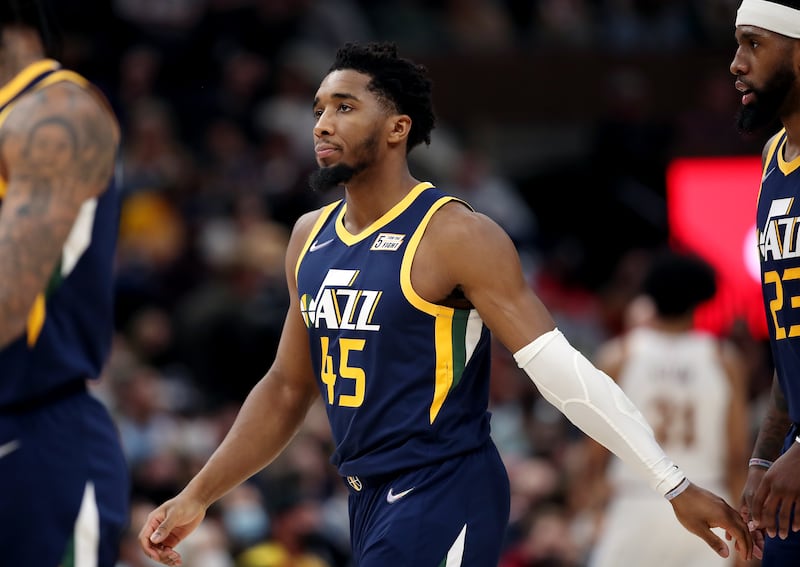It wasn’t long after the Utah Jazz played the Los Angeles Lakers on Jan. 17 that Donovan Mitchell knew that he wasn’t quite right.
He was already feeling pretty out of it by the time the team landed back in Salt Lake City well after midnight. He didn’t manage to fall asleep until after 7 a.m. and figured that he had sustained a concussion once the headaches and nausea set in.
“The first five or six days, I wasn’t doing anything,” Mitchell said. “I wasn’t on my phone, I wasn’t playing Xbox, not leaving my house. It was bad — the headaches and the nausea. I was pretty messed up.”
Now, 18 days after the initial head injury, Mitchell is symptom-free and set to return to action Friday night against the Brooklyn Nets. But the last couple of weeks haven’t been easy.
Not only was Mitchell frustrated by not being able to compete and play, sidelined while his team was going through its roughest stretch of the season, but just as he felt like he was getting better, things got worse, and it scared him.
He was working his way through the NBA’s concussion protocol, which includes multiple different exertion, strength and cognitive tests, each of which must be completed with the player remaining symptom-free the day of and the day after each test.
Leading up to the Jazz’s recent road trip to Memphis and Minnesota, Mitchell was checking off boxes through the protocol and was hoping that he’d clear in time to play on the trip. He played 3-on-3 (one of the concussion protocol steps) the morning the team left Utah for Memphis and was feeling good. But he started to feel symptomatic again on the team flight.
“It got to a point where I was kind of a little nervous to be honest. I’ve had concussions before and none of them have really felt this bad.” — Donovan Mitchell
“It got to a point where I was kind of a little nervous to be honest,” Mitchell said. “I’ve had concussions before and none of them have really felt this bad.”
But according to Dr. Vernon Williams, the founding director of the Center for Sports Neurology and Pain Medicine at Cedars-Sinai Kerlan Jobe Institute in Los Angeles, two weeks is a completely normal amount of time for someone to spend recovering from a concussion.
“Two weeks is still in the realm of normal,” Williams said in an interview with the Deseret News. “That’s not really considered prolonged. We start to call things chronic in the realm of months. Three or four weeks out might be a little prolonged, but it all depends on the age of the person and a number of different factors.”
So while Mitchell was concerned, and there was speculation swirling about his absence, medically speaking, his concussion, his symptoms and how long they were lasting was all very normal. Mitchell didn’t realize that until he sought out a specialist.
“I didn’t know that,” Mitchell said. “But it’s not a long time, as I found out. That made me feel a little bit better. I’ve just recovered faster with my previous concussions.”
Mitchell said that he’s had four concussions in his life — one in high school, one in college at Louisville, one last season and the one he just sustained. But Williams points out that even if he’s had previous concussions, that doesn’t mean one will be like the others.
“The old adage is that if you’ve seen one concussion, you’ve seen one concussion,” Williams said. “They are extremely variable from person to person, and even within an individual the duration of symptoms can be extremely variable. A person may have one concussion, and it takes three or four weeks to resolve and then the next concussion resolves in three or four days.”
One day after being named an All-Star for the third straight season, Mitchell said that more than anything he’s just looking forward to getting back out on the court and joked that since conditioning time was limited over the last couple of weeks, we’d find out Friday night if the work he did was good enough to carry him through the game.


